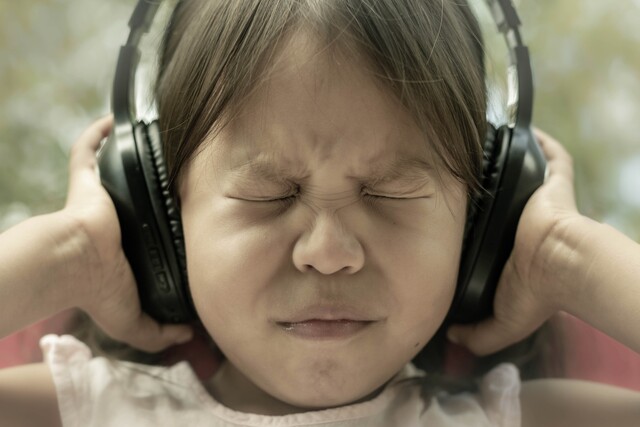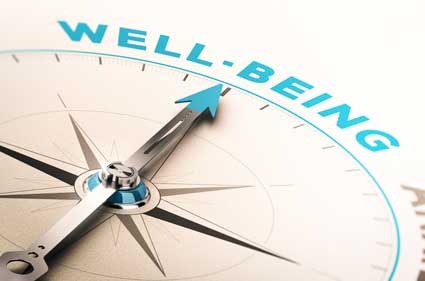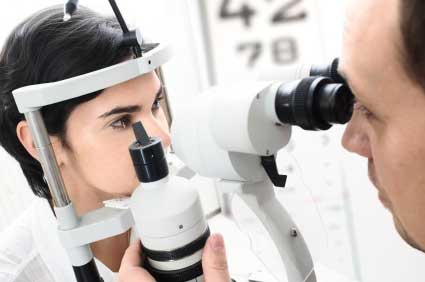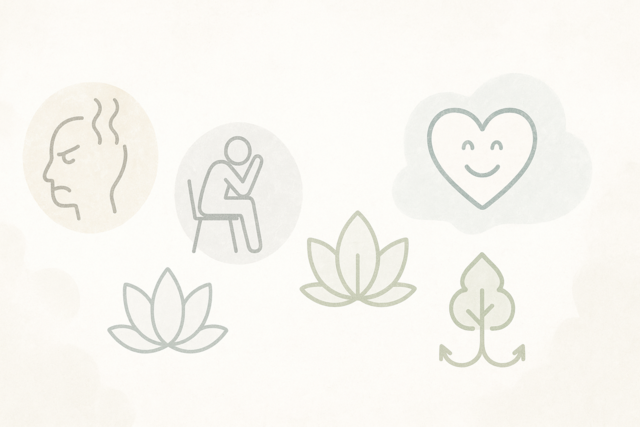Ways to Avoid Drug Addiction Relapse
Relapse is not just an event but is, in actuality, a process. In order to try to understand drug addiction relapse, you need to know about the stages of drug relapse. Relapse can start weeks or months before you experience an actual physical relapse.
The three stages of drug addiction relapse are as follows:
Emotional Relapse. When you experience this type of relapse, the last thing you are thinking about is using. While you are not actively using drugs, your behaviors and emotions are setting you up for relapse in the physical sense. The typical signs of emotional relapse include the following:
-
Inability to sleep
-
Bad eating habits
-
Failing to go to Narcanon meetings
-
Failing to ask for help with your relapse
-
Isolation from others
-
Mood swings
-
Defensiveness
-
Anger
-
Intolerance toward others
-
Anxiety symptoms
The typical signs of undergoing an emotional relapse are similar to that which you may find in post-acute withdrawal. By understanding this type of withdrawal, you can more easily avoid a relapse. In the later stage of emotional relapse, the pull to use drugs again becomes stronger and physical relapse occurs faster.
Emotional relapse during this stage requires that you recognize that you are in this type of relapse and that you change your behavior. This is the time that you need to remind yourself that you need help. You need to recognize anxiety and practice techniques that promote relaxation. If your eating habits and sleep habits are slipping, you need to pay attention to self-care.
If you can't change your behaviors in emotional relapse and you spend too much time in this stage, you can become extremely fatigued. When this happens, you will feel the need to go back to using, which will send you to the stage of mental relapse.
The best way to prevent an emotional relapse is to take care of yourself better. You need to spend time thinking about why you used drugs. You probably used drugs to reward yourself, to relax or to escape. You can prevent a relapse by taking good care of yourself and by creating situations that don't emotionally or mentally drain yourself.
Mental relapse. When you are mentally relapsing, the problem is in your mind. One part of your brain wants to use drugs, while another part does not want to use drugs. If you are early in this stage, you are just thinking about taking up drugs again but, in the later stage of mental relapse, you are actually thinking about using drugs.
The signs of mental relapse include the following:
-
Planning to use drugs
-
Thinking about taking drugs
-
Fantasizing about using drugs
-
Lying to others
-
Thinking of your past use as glamourous
-
Thinking about things, places, and the people you used to use drugs with
Techniques for dealing with mental relapse include the following:
Think about the consequence of using. This means recognizing that one time using drugs often leads to using more drugs. This often means waking up the next day feeling a great deal of disappointment in yourself. Soon, you'll find yourself in a vicious cycle of ongoing drug use. When you think about the consequences of using drugs and recognize its implications, using drugs doesn't seem so appealing.
Talk to someone about your urges to use drugs. Call someone else who is in recovery, a support person, a friend, a relative, or a therapist. Tell them what you're going through. When you share your feelings about your urges to use drugs, your urges will start to go away. You won't feel as alone around drug use.
Distract yourself. Do something to occupy yourself rather than using drugs. Try taking a walk. If you don't do anything about your urges, you will slip further into mental relapse.
Wait for a half an hour. Most urges only last less than 15 minutes, even though it feels much longer than that. If you can stay busy for half an hour, the urges will pass.
Try recovering one day at a time. Don't focus on staying away from drugs forever. This can be paralyzing. When you recover one day at a time, you will be able to connect your goals to your emotional strength. When you feel stronger, you will be less motivated to used drugs. You stop thinking of being drug-free forever and instead think about quitting in bite-sized chunks that are more manageable.
Relax as part of your recovery. Relaxation is important in preventing a relapse because, when you are not relaxed, you are more likely to go back to using drugs. You'll make the same mistakes as you used to make when you were using drugs.
Physical relapse. After going through emotional relapse and mental relapse, it doesn't take long before you go into physical relapse. You find yourself driving to your drug dealer and experience physical withdrawal symptoms. This is when it is hard to stop the process of relapsing. If you can recognize the early warning signs of emotional and mental relapse, this can prevent you from falling into physical relapse.
Ways to Avoid Alcohol Relapse
You can avoid having a relapse into drinking again if you can take proactive measures to stop the relapse and can remain diligent in your efforts to remain sober. While it is nearly impossible to avoid all triggers and temptations, if you follow the appropriate steps you can make the right decisions when faced with a possible trigger. Some alcohol relapse preventative measures include medication, therapy, and support groups.
Common Causes of Relapse into Drinking Again
Alcohol relapse is extremely common among alcoholics trying to avoid drinking again. However, you can make use of preventative measures that significantly reduce the chances that you will have a relapse into drinking again.
Common triggers of alcohol relapse include the following:
-
Stress. Many alcoholics use drinking as a way to fight stressful feelings. When you experience a stressful event, you may feel the urge to return to old patterns and begin using alcohol again. It is impossible to live a life that is entirely stress-free, so it is crucial to find ways of coping with stress without returning to drinking again.
-
Environmental triggers. Environmental triggers include exposure to activities, places, or people you used to drink again. Because there are so many environmental triggers, they are hard to avoid. Successful relapse prevention includes using the tools and training gained from alcohol treatment to help you find healthy ways of dealing with triggers.
-
Exposure to small amounts of alcohol. Even small exposures to alcohol can trigger a relapse when you are in the recovery process. You may be exposed to small amounts of alcohol through unknowingly eating food made with alcohol or if you begin testing yourself to see If you can drink just a little amount of the substance.
The Benefits of 12-Step Programs
Twelve-step programs such as AA (Alcoholics Anonymous) can help alcoholics by providing them with a structured program that encourages the alcoholic in recovery and gives them the support they need to remain sober. AA generally recommends a philosophy that includes staying sober one day at a time. This lets those recovering from alcohol to focus on quitting drinking on a daily basis rather than worrying about what could happen in the future.
AA members are able in a structured setting to discuss their own problems with addiction during AA meetings. When you can listen to others talk about their own journeys into recovery, you can learn ways to deal with any triggers you face and avoid relapsing into drinking again.
Sponsors
AA members can sponsor those alcoholics that are newly sober to help them prevent relapse and recover from alcohol addiction. To become a sponsor, you need to have already completed the 12-step program and must be sober for a long period of time. Sponsors are helpful because they help newly sober alcoholics face their own life challenges by using those experiences they acquired during their own recovery process. Most new AA members get a sponsor shortly after starting to attend AA meetings.
Therapy
Therapy can help the recovering alcoholic understand how to deal with a high risk situation when one encountered. Cognitive behavioral therapy is one therapy technique that can help those in recovery from alcohol addiction find the skills necessary to avoid a relapse.
Relapse often happens because the alcoholic in recovery:
-
Hasn't truly addressed their conflict or negative emotions that led them to become an alcoholic.
-
Doesn't understand how to react to the social pressures to drink again.
-
The alcoholic spends too much time around their drinking buddies.
Through attending therapy (individual or group therapy), you can learn how to respond to environmental triggers and stress--both of which can lead to relapse. Therapy is proactive and helps the alcoholic learn how to deal with situations that are high-risk for a relapse and teach the alcoholic that the likelihood they will encounter such a situation sooner rather than later. If the recovering alcoholic can successfully deal with high-risk situations and triggers, they often become more self-reliant. These positive feelings can lessen the chances of relapsing.
Therapy can also help the alcoholic in recovery keep from allowing a single slip in behavior from becoming a full-blown relapse. The truth is that slips are very possible. The way you view a slip can determine what happens next. If you see a slip as a personal failure, you may feel shame and guilt that can cause you to enter a full-blown relapse.
In addition, if you feel as though the slip was something you weren't in control of, you are at a greater risk of suffering from a relapse. If you see a slip as being due to not having the skills necessary to successfully challenge the trigger, you will be able to see a therapist who can help you learn skills to stay on track with your recovery process.
Medication
Medications can sometimes be prescribed to the alcoholic in recovery in order to prevent a relapse. Medications like disulfiram (Antabuse) have the following effects on the body and mind:
-
They stop the positive association the alcoholic experiences with alcohol.
-
They train the body and mind to recognize that alcohol is harmful to them.
If you take disulfiram, you will likely have some of the following adverse effects when you try to drink alcohol while taking the drug:
-
Heart palpitations
-
Confusion
-
Sweating
-
Thirst
-
Nausea and vomiting
-
Flushing of the body
-
Chest pain
-
Headache
It is crucial to not, however, that not all medications for alcohol recovery will make the alcoholic feel ill when they drink and take the medication at the same time. Naltrexone, for example, will not cause nausea and vomiting if they take it and drink alcohol. Recovering alcoholics who have been prescribed naltrexone will have fewer cravings for alcohol and better treatment outcomes.
Any medication you use to prevent a relapse into alcohol should be talked over with your doctor and should be used as just one aspect of recovery. Other aspects of recovery you can count on include social support and therapy. These solutions, however, only work if you are able to attend therapy on a regular basis, take medications prescribed by the doctor, or become a participant in a support group.
If you thing it will be impossible to recover on your own without 24-hour supervision, you may want to attend an inpatient treatment facility that will help your through withdrawal and can help you obtain the skills necessary to deal with your alcoholism using the help of staff members dedicated toward your sobriety.
Ways to Avoid a Relapse into Smoking
Relapse at some point in recovering from a smoking addiction is a frequent occurrence. If you fail the first few times, don't quit trying. The idea is to learn from your mistakes so you are more likely to be successful the next time. When quitting smoking, it is crucial that you feel positive and truly believe in your ability to succeed at tobacco cessation.
You shouldn't have the expectation that you will begin smoking again. A temporary slip-up should not mean that you will go back to smoking in the same way as you did in the past. Slip-ups should instead provide you with the opportunity to learn more about yourself and learn what things will be helpful to you to successfully quit smoking in the future.
If you do suffer a relapse, don't worry as it can take several tries to quit smoking for good. It can be helpful to try not to have even one drag on a cigarette. Make this a promise to both yourself and those who care about you. By sticking to this promise, you can usually guarantee that eventually you will become a non-smoker.
Ways to Prevent Slip-ups
You need to understand why some people who have quit smoking return to smoking again. The main reason why people slip up when they are trying to quit is that people often give in to cravings for tobacco products.
Cravings represent strong urges to smoke and are often triggered by stressful situations, getting intoxicated, seeing others smoke, and going through emotional crises, such as having an argument with someone. The best way to overcome cravings is to engage in behavioral changes and use medications that help you stop smoking.
You should try to stay away from people who are smoking. Nearly 75 percent of all people who suffer a relapse do so because they are exposed to others who are smoking and asking the other smoker for a puff on their cigarette.
The risk of relapse is highest in the beginning. Some people, however, relapse months or years after quitting smoking. It is best to avoid a relapse altogether but, if you do give in and start smoking again, don't worry. Just think about what went wrong and make plans as to how you will cope with a similar situation should it come up in the future.
If you suffer a brief slip-up, try these "stop smoking" tips:
-
Remind yourself why you want to quit. Think about why quitting is the healthiest option for you and then regain control over your behavior.
-
Don't give up. You can still prevent a full-blown relapse. Commit to not taking a single drag off a cigarette and get back on track.
-
Keep taking medications that help you stop smoking. This may mean using nicotine replacement therapy unless you begin smoking again. Nicotine replacement therapy can help you get back to becoming a nonsmoker.
-
Remain strong. If you find yourself tempted to smoke again, wait two hours before acting on the impulse. After that, think about whether or not you really need to smoke again.
-
Make it difficult to smoke. Avoid those places where smokers are present so you won't have the urge to bum a cigarette out of them
-
Get support. There are stop smoking helplines for people trying to quit smoking and there are support groups for people trying to quit smoking that can help you stay on track with smoking cessation.
If you've suffered a relapse and have returned to regular smoking, try these tips:
-
Don't become despondent. Try setting a new date to quit smoking. Try waiting a week or two before making another attempt at stopping smoking.
-
Stay positive. Slipping up and making mistakes can help you recognize what went wrong so you can learn from the mistake. You'll be better able to stop smoking in the future because you'll know what your triggers are.
-
Talk to your physician or local stop smoking hotline. If you need help with avoiding triggers and coping with cravings, your doctor can help as can a stop smoking hotline.
-
Learn from your errors. Think about what caused you to start smoking again and think of ways you could have avoided using cigarettes again. Try to enhance your coping skills so you are better prepared the next time you are faced with a trigger to start smoking.
Successfully Quitting Smoking
Stopping smoking is not just a "one-time" thing. It isn't like taking a painkiller for a headache. Addiction to tobacco is a lifelong, chronic condition that requires ongoing maintenance for the rest of your life. The most important stage of smoking cessation is staying free from tobacco products. If you are trying to stay free of tobacco, you need to be prepared for the inevitable urges to smoke that lead to relapse. This is crucial as is being committed to using aggressive actions to stopping smoking.
Slip-ups
Most slip-ups occur in the first week after trying to quit smoking. If you have a slip-up and have one or two cigarettes after you have tried to quit or if you have even one puff of a cigarette, it doesn't mean that you'll start smoking again or that you'll have a full-blown relapse. Many people have a relapse after quitting. It is important to remember not to have a slip-up because you think you can quit smoking after having just one cigarette.
The Hazards of Having "Just One" Cigarette
Often, a single slip-up will trigger depression, self-criticism, and negative feelings. This may lead to a sensation of being out of control and may lead to more slip-ups. Having several slip-ups in a row or facing situations where you are tempted to smoke again may increase the chances that you will have a relapse.
When faced with the extreme temptation to smoke, try these tips:
-
Remember how difficult it was to quit in the first place and recognize that you don't want to go through that all over again.
-
Avoid the thought that just one cigarette won't hurt you. Most likely, you won't stop at just one cigarette and will crave another.
-
Think about the many health benefits of smoking cessation.
If you do have a slip-up, try these tips:
-
Look over your "quit smoking" journal or your list of reasons why you wanted to quit and then make the decision to take control over your behavior again.
-
Remember past situations in which you were strong and were able to avoid smoking again.
-
Don't let yourself have a cigarette for 2 hours after having a craving. The craving may easily pass within that period of time.
-
Make it hard to obtain tobacco products. Don't buy a pack "just in case". Don't go to places where you will be tempted to ask another person for a cigarette.
-
Talk with someone else who has successfully quit, a "quit smoking" hotline, or your physician about your cravings.
-
Recognize that slip-ups are not a sign of failure. Don't give up on the efforts you have done so far to quit smoking.
-
Recognize that slip-ups are just brief returns to old behaviors. See it as a warning sign that you have begun to go back to old ways and that you might have a relapse. With a renewed effort, you can overcome the slip-up and get back on track to not smoking.
Having a Relapse
Strong cravings to smoke can happen many months or years after quitting. Often, these unpredictable urges can be the most harmful. Recognize that relapse doesn't occur in a vacuum. There is usually a triggering event or a circumstance that creates craving, tobacco abuse, or poor judgment around smoking.
Common relapse triggers include the following:
-
Increased stress
-
Having a pessimistic attitude
-
Not taking care of yourself
-
Overworking
-
Feeling fatigued
-
Sleeping poorly
-
Having feelings of entitlement, self-pity, or anger
-
Being isolated from loved ones and other support people
-
Being overconfident about your ability to quit
-
Feeling stressed, overwhelmed, or hurried
-
Becoming intoxicated
-
Being around smokers
You can use the same techniques to refrain from smoking as you did to help you get through tobacco withdrawal. Think about what tempts you to smoke and plan on alternatives and activities that don't involve smoking. Remember the reasons why you wanted to quit in the first place and redirect your urges to smoke. Find coping skills like getting information about common triggers, creating positive actions, redirecting your behavior, and managing cravings.
Special Concerns regarding Smoking Cessation
There are some things you need to consider if you want to become a nonsmoker, including the following:
-
Weight gain. Weight gain can be one thing you worry about when trying to quit smoking. You can manage the weight gain that sometimes follows smoking cessation. A help line or your doctor can help you find a weight loss plan that will minimize weight gain. It is more dangerous to smoke than it is to gain a few pounds. First quit smoking and then worry about weight gain later. Focus on being healthy and not so much on weight gain. Limit your intake of fat and eat lots of fruits and vegetables. Get enough sleep, exercise more, and drink a lot of water.
-
Stress. Many smokers smoke because it helps them to deal with stress and other negative emotions. When you are trying to quit smoking, you need to learn new ways of dealing with stress, including the following:
Try prayer and meditation to reduce stress
Take a stress-management course
Exercise more
Find stress-reducing strategies that work long term
Use nicotine replacement therapy on a short term basis
Pay attention to your behaviors and change those behaviors that lead to smoking again
-
Taking Care of Yourself. Let your doctor know that you've used cigarettes or other tobacco products in the past and let them know that you are now a nonsmoker so you can get adequate preventative healthcare. Tobacco use puts you at an increased risk of tobacco-related illnesses so you'll want to be screened for them. This may include having an examination of your mouth for cancerous or pre-cancerous changes.
Be aware of any new cough or the coughing up of blood, wheezing, weight loss, fatigue, shortness of breath, respiratory infections, chest pain, and loss of appetite as these can signal the possibility of lung cancer. Remember that you are at risk for other cancers besides lung cancer and be aware of any warning signs of cancer.
-
Being Pregnant and Smoking. It is important to quit smoking and stop using other tobacco products while you are pregnant as this can harm the fetus. It is common to relapse within a year of having a baby. Factors that contribute to relapse during this time include having a spouse that smokes, a lack of support, postpartum depression, financial stressors, and the stress of taking care of an infant.
If you are a smoker and are also pregnant or are a new mother, try these tips:
-
Try to find a support system that will help you maintain your nonsmoking lifestyle.
-
Seek interventions for quitting smoking in the latter half of the pregnancy and right after giving birth.
-
Encourage your spouse to quit and make sure that your home and vehicles are smoke-free areas as this will help the health of the baby.
-
Get some type of counseling to help you stop smoking.































